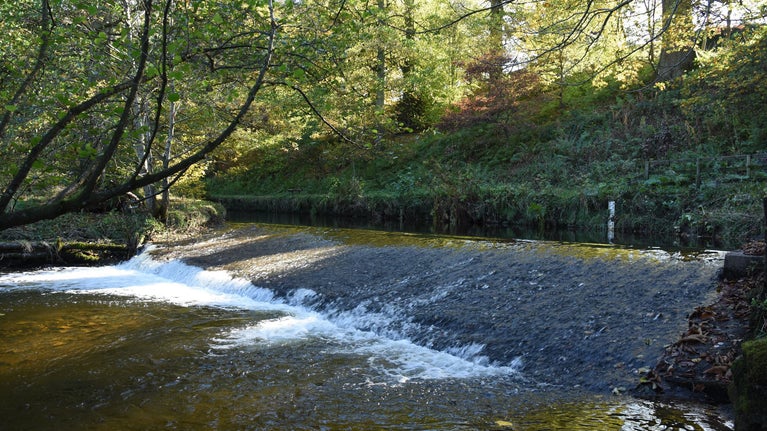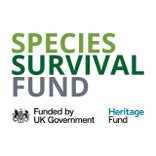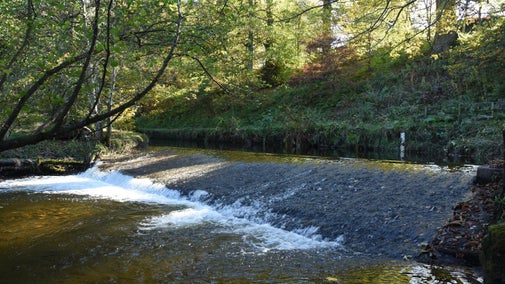Riverlands: Oral Histories at Acorn Bank

Jump to
- Phil Ramsden - Environment Agency Fisheries Specialist
- Will Cleasby
- David Crackanthorpe
- Claire Heron - Holy Wells and Healing Waters
- Danny and Maddy Teasedale- Ullswater CIC
- Bob Price - Miller, Acorn Bank Watermill Trust
- Catherine Atkinson
- Hazel Barringer
- Heather Birkett - Garden & Outdoor Manager, National Trust
- Ray Wager - artist
- David Robertson - Volunteer Miller, Acorn Bank Watermill Trust
- Nick Franklin - Welcome & Service Assistant, National Trust
- Jordan McKeating - Wild Food Foraging Instructor
- Tony Greenwood - Industrial Heritage Guide, National Trust
- Timothy Whittaker
- Bronwyn Thomas - Gardener and Volunteer Manager, National Trust
- John Dumont - angler
- Chris Taberner - Gardener, National Trust
- Margaret, Richard and Alison - Penrith Beekeepers
- Gill Atkinson - Welcome Team Member, National Trust
- Raymond Clark - Environment Agency, Field Monitoring Team
- Forest School pupils
- Our partners
Alongside the Riverlands project, an oral history project has gathered generational memories, connections and feelings about Crowdundle Beck and the surrounding area. You can find the oral histories at Acorn Bank as part of a trail.
Oral Histories short film
The voices you hear on this film are all participants in the Riverlands oral histories projects. Hear the full interviews below.
Allow video to play? This page contains content that is published to YouTube.
We ask for your permission before anything is loaded, as this content may introduce additional cookies. You may want to read the Google YouTube terms of service and privacy policy before accepting.
We hope that the voices you hear on the oral histories trail will help you to reflect on your own connection with water, and inspire you to engage with conservation - you could even be part of the creation and restoration of freshwater habitats where you live.
This project is funded by the Government's Species Survival Fund. The fund was developed by Defra and its Arm's-Length Bodies. It is being delivered by The National Lottery Heritage Fund in partnership with Natural England and the Environment Agency.
Phil Ramsden - Environment Agency Fisheries Specialist
Phil started fishing at the age of five, and his love of rivers and fish led him to a career with the Environment Agency. Phil is passionate about conservation of fish species, and he explains how maintaining healthy ecosystems within the river is vital for the many aquatic species which live in the beck.
Read the transcript of this interview here.
Will Cleasby
Will has worked in river conservation for some years, and now farms the land right beside Crowdundle Beck. Will talks about his daily interaction with the beck, its wildlife and beauty, and how it's inspiring a new generation to connect with river landscapes.
Read the transcript of this interview here.
David Crackanthorpe
David was born within earshot of the beck in the 1929, and it has been part of his life in many ways - from ice skating to providing hydro-electricity for Newbiggin Hall! David tells intriguing stories about growing up next to Crowdundle Beck, and lays out some of the history of the beck (which stretches right back to the Romans).
Read the transcript of this interview here.
Claire Heron - Holy Wells and Healing Waters
Claire is known for her extensive research on the Holy Wells and historic wells of Cumbria, and firmly believes that healthy culture is rooted in the land and water. Claire recounts traditions such as ‘shaking bottle Sunday’ and reflects on how a closer connection to water can be refreshing and renewing in our everyday lives.
Read the transcript of this interview here.
Danny and Maddy Teasedale- Ullswater CIC
In 2016, Storm Desmond caused devastation in many parts of Cumbria. Since then, Danny and Maddy have been working with farmers and landowners create natural flood management and flood resilience. They discuss their critical river restoration work, concerns about declining salmon numbers and what can be done to help.
Read the transcript of this interview here.
Bob Price - Miller, Acorn Bank Watermill Trust
Bob started volunteering at Acorn Bank watermill in 2007 and played a key role in the renovation and regeneration of the mill. He tells the story of this, and explains that 'the beck is the lifeblood of the mill'. He also recollects memories of wildlife including eels, swallows, otters, kingfishers and crayfish.
Read the transcript of this interview here.
Catherine Atkinson
Catherine spent her school years living in Temple Sowerby. As an A Level Geography student, she chose Crowdundle Beck to study as her field project. Catherine recounts some entertaining adventures, including borrowing farmer’s waders and floating oranges down the beck.
Read the transcript of this interview here.
Hazel Barringer
In the 1990s, Hazel volunteered as a cook for the local scout group, who came to Acorn Bank for camping expeditions. She recalls many fond memories of Crowdundle Beck's wonderful surroundings and daily swimming sessions. She notes the lifelong interest in nature developed by the boys who spent time immersed in this special place.
Read the transcript of this interview here.
Heather Birkett - Garden & Outdoor Manager, National Trust
Heather has vast knowledge of the flora and fauna in the riverland gardens, and loves the peaceful magic of Acorn Bank. Heather talks about Dorothy Una Ratcliffe’s vision for conservation of native floral species and creating a bird sanctuary at Acorn Bank.
Read the transcript of this interview here.
Ray Wager - artist
Since retiring, Ray has found more time to pursue his passion for art. A few years ago, he used pastels to create a beautiful, atmospheric painting of Crowdundle Beck. Ray explains why he chose the beck as a subject for his art, and talks about the magical atmosphere which inspired his painting.
Read the transcript of this interview here.
David Robertson - Volunteer Miller, Acorn Bank Watermill Trust
David volunteers as a miller and an industrial tour guide. He reflects on the intrinsic links between Crowdundle Beck and the industrial heritage of Acorn Bank. David also talks about the wildlife he's seem on the riverbanks and the variety of birds which have built their nests inside the mill buildings.
Read the transcript of this interview here.
Nick Franklin - Welcome & Service Assistant, National Trust
Nick is passionately interested in birdlife and aculeate species. Being outdoors most of the time at Acorn Bank, he observes much about the wildlife on Crowdundle’s riverbank. He talks about the animals, birds and insects he has seen, including sandpipers and Daubenton’s bats.
Read the transcript of this interview here.
Jordan McKeating - Wild Food Foraging Instructor
Jordan leads wild food foraging expeditions around Acorn Bank and has a broad knowledge of fungi. He recognises how foraging can reconnect people to nature and the huge benefits to our general well-being. Jordan discusses the edible plants he finds on the riverbank, the wonders of the mycelium network, and how fungi are vital for carbon capture.
Read the transcript of this interview here.
Tony Greenwood - Industrial Heritage Guide, National Trust
Tony gives industrial heritage tours around Acorn Bank, and has evidence that the course of the beck has changed over time, largely due to the force of water. He describes tour and how the gypsum mines and watermill were intrinsically linked to Crowdundle Beck.
Read the transcript of this interview here.
Timothy Whittaker
Local resident Tim is a regular visitor to Acorn Bank. He enjoys the tranquility and beauty of the walks along the meandering section of Crowdundle Beck. Tim has an avid interest in archaeology and history and talks about the historical importance of Crowdundle Beck ‘upstream’ in Newbiggin and Milburn.
Read the transcript of this interview here.
Bronwyn Thomas - Gardener and Volunteer Manager, National Trust
Bronwyn initially learnt much about the unusual plants from her ‘inquisitive’ volunteers who regularly explored the grounds and riverbank. Bronwyn talks about her personal and professional connections to nature, and about the unique woodland species which may have originated from Kew Gardens nearly 100 years ago.
Read the transcript of this interview here.
John Dumont - angler
Chris Taberner - Gardener, National Trust
Chris is a keen dog walker who loves the beauty and calm of the beck, and has also spent many hours around the riverbank as a National Trust gardener and estate team member. Chris observes the impact of storms and floods on both the weir and the riverbank.
Read the transcript of this interview here.
Margaret, Richard and Alison - Penrith Beekeepers
Acorn Bank is home to a training apiary run by Penrith Beekeepers, and here three of them tell us about their education work with both new beekeepers and visitors. They share their knowledge of bees and discuss the importance of both a nearby water source and a plentiful supply of foraging plants for the survival of all pollinators.
Read the transcript of this interview here.
Gill Atkinson - Welcome Team Member, National Trust
Gill has worked at Acorn Bank for 20 years in various roles, both as a volunteer and employee. She has built up a wealth of knowledge and a deep love of the place. Gill talks about the changes she's seen over time, and why she thinks Acorn Bank evokes a unique and special ambience.
Read the transcript of this interview here.
Raymond Clark - Environment Agency, Field Monitoring Team
Raymond’s career has connected him with Cumbrian rivers for years. He now largely spends his time monitoring river species and water quality in becks and rivers for the Environment Agency. Raymond describes his daily work on the river, and observes changes in the abundance of riverfly, fish, birds and mammals.
Read the transcript of this interview here.
Forest School pupils
Acorn Bank regularly hosts local school children for their 'forest school' sessions, where they undertake a variety of activities in the woodland and on the riverbank. The children talk about what they get up to in forest school, and why being immersed in nature is not only fun but also hugely beneficial to their general wellbeing.
Read the transcript of this interview here.
Our partners

A short-term programme to create and restore habitats and reverse the decline of species across England, delivered on behalf of Defra.
Riverlands: Caring for Crowdundle Beck
Rivers are life forces. They’ve helped sustain ecosystems, cultures and communities for millennia, their quiet power steadily shaping everything from landscapes to place names. But many of our rivers are under threat from climate change, pollution, and human-made changes to the landscapes and waterways, which is why the National Trust launched Riverlands.

Riverlands: working to restore Cumbria's waterways
Find out more about the work the National Trust is doing with local partners, our farmers and other landowners in the area to help restore the Cumbria's rivers.